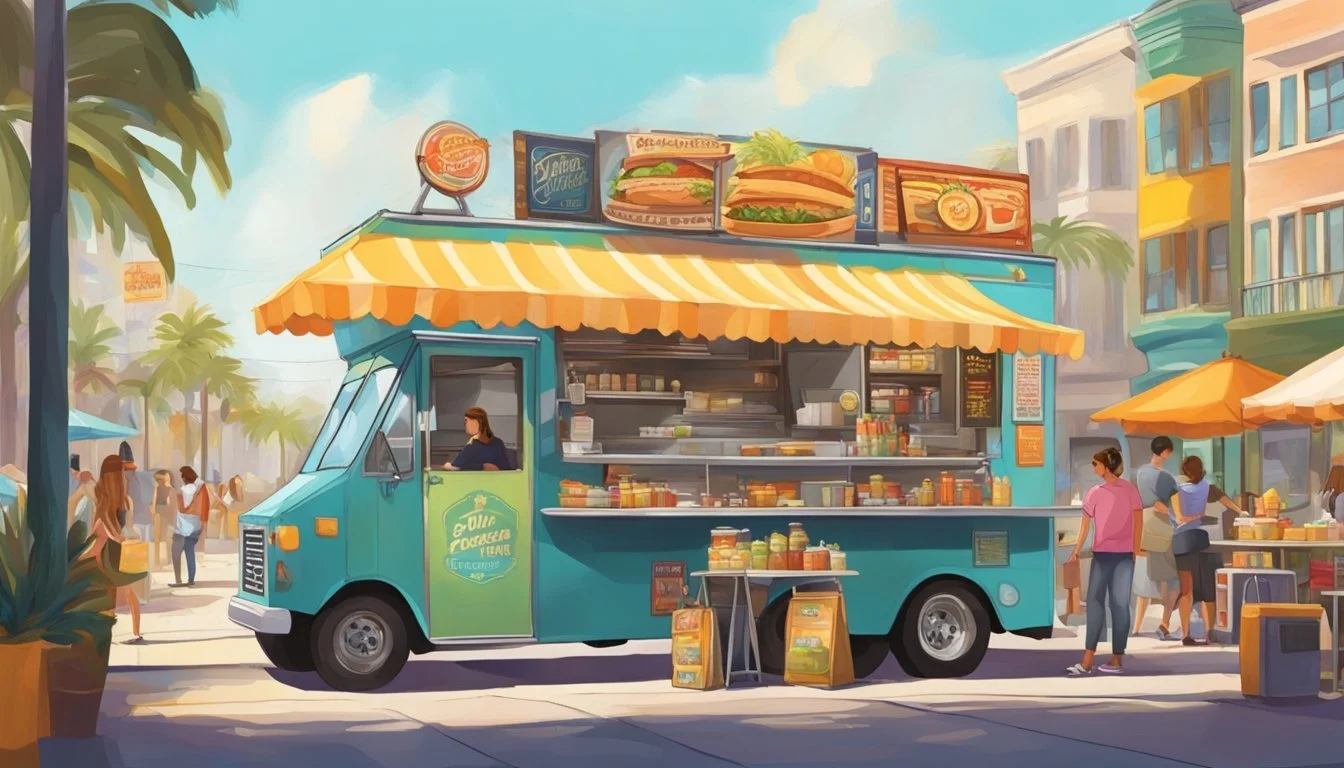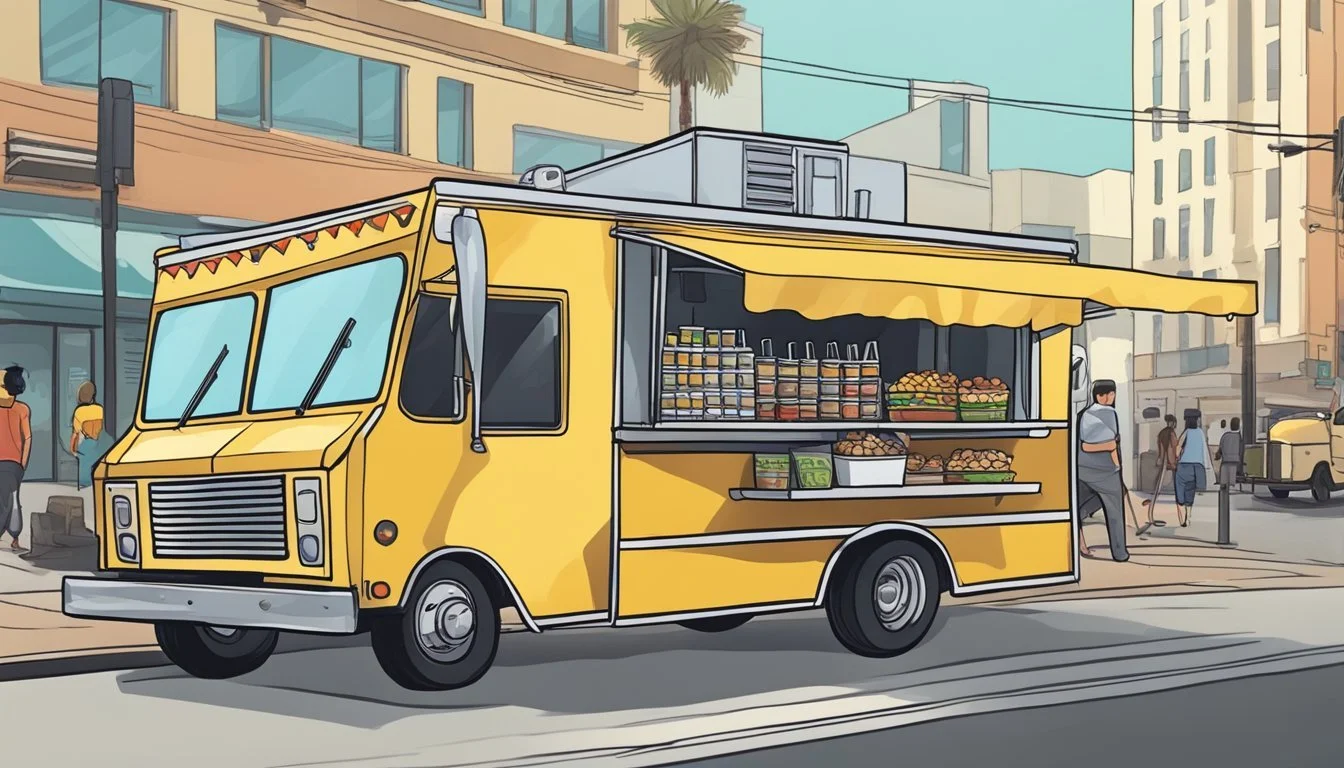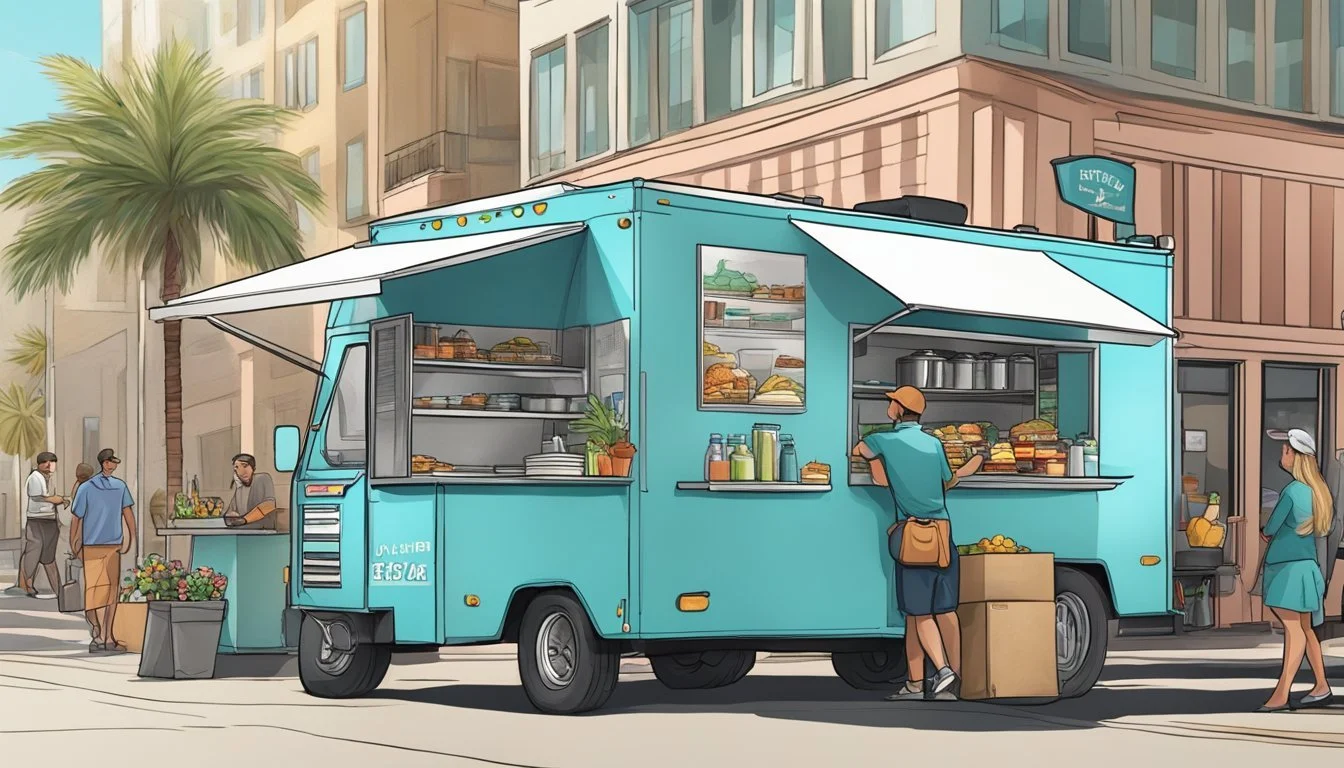Food Truck Laws Long Beach, California
Navigating Regulations for Mobile Eateries
In Long Beach, California, food trucks and street vendors are an integral part of the urban culinary tapestry, offering a diverse array of foods that reflect the city's vibrant culture. However, just like any other business, they are subject to a framework of health and safety regulations, as well as city-specific ordinances that govern where and how they can operate. The City of Long Beach has taken steps to enforce state and local food safety regulations to ensure public health is never compromised while fostering a thriving environment for these mobile food facilities.
Recent developments in the regulatory landscape have seen the City of Long Beach seeking to update and inform these regulations. Community engagement plays a crucial role as local authorities invite public input to tailor food truck regulations that serve the needs of all stakeholders. Areas of focus include the simplification of existing rules and the coordination of various regulatory bodies, ensuring vendors are clear on compliance requirements while also making it easier for them to conduct their businesses.
These alterations to the city's food truck laws are designed to strike a balance between the entrepreneurial spirit of food truck operators and the need for public safety and neighborhood compatibility. In this regard, Long Beach has been proactive in proposing updates to the food truck ordinance, which were considered by the Long Beach City Council, marking a collaborative effort to enhance and evolve the city's food truck program.
Overview of Food Truck Regulations
In Long Beach, California, food trucks are subject to a developing regulatory landscape that seeks to balance the interests of various stakeholders while ensuring public safety and convenience. The City Council has actively been working on creating ordinances that provide clear guidelines for food truck operations throughout the city.
Food truck operators in Long Beach must comply with comprehensive regulations surrounding the location and operation of their businesses. This includes designated areas where food trucks can operate and the requirements for obtaining necessary permits.
Permit Types
Location Permit: For specified zones of operation.
Nuisance Permit: Delineating acceptable noise levels and waste management expectations.
Public Safety & Zoning
Food trucks must adhere to traffic safety regulations and are not permitted to obstruct ADA access.
Zoning laws dictate distance from brick-and-mortar restaurants and residential areas to minimize disruption.
A recent surge in the popularity of food trucks due to factors such as the COVID-19 pandemic led to an increased focus on regulation. In response, the city council approved measures for the regulation of food trucks to tackle issues related to traffic, public health nuisances, and to preserve ADA compliance.
The Department of Public Works has been instrumental in gathering community input through surveys, demonstrating Long Beach's commitment to civic engagement in the formation of its policies. For continual updates and current specifics regarding food truck regulations, the official Long Beach government website is an invaluable resource for operators and citizens alike.
Starting a Food Truck Business
Starting a food truck business in Long Beach, California, involves meticulous planning to comply with local regulations. Entrepreneurs must secure the necessary permits, adhere to health and safety requirements, and strategically choose their operating locations.
Securing Business Permits
A business license is the first legal requirement for launching a food truck in Long Beach. Business owners must apply to the City's Business License Division. They should be prepared to provide specific details about their food truck, including the scope of their menu and the size of their operation.
Application: Visit the City of Long Beach Business License Division to start the licensing process.
Fees: Fees vary based on business type and other factors.
Health Permits and Food Safety
Food trucks in Long Beach are subject to the California Retail Food Code, meaning a health permit is mandatory. The health permit ensures food vendors follow state and local food safety regulations. Operators must complete a food safety certification course and have at least one certified individual onboard the food truck whenever it's operational.
Training: ServSafe or a similar program for food safety certification.
Inspections: Regular health inspections will be conducted without prior notice.
Choosing a Location
Finding the right location is critical for food truck success. Long Beach has designated areas where food trucks can operate, but there are also restrictions near schools, parks, and certain commercial districts.
Research: Befamiliar with the Long Beach Municipal Code relating to street vending.
Coordination: Engage with local business districts to find viable spots for setting up the food truck.
Entrepreneurs must ensure that their operation aligns with Long Beach’s zoning laws and parking regulations to avoid penalties and maximize customer access.
Food Truck Operations
Food truck operations in Long Beach are governed by specific regulations, which address where and how vendors can operate within the city. The rules set by the City Council aim to balance various interests, from public safety to fair competition among businesses.
Parking and Location Restrictions
Food trucks in Long Beach face several location constraints that dictate where they may park and serve customers. The city's regulations prohibit food trucks from operating in certain parking-impacted neighborhoods to alleviate congestion. Details on these restricted areas can be found in the Long Beach council to review revamped food truck regulations. Additionally, the city has specific requirements regarding the distance food trucks must maintain from brick-and-mortar restaurants and other food trucks, ensuring fair business practices and accessibility.
Examples of parking and location restrictions include:
No parking in designated residential areas
Required distance from other food vendors
Avoidance of congested zones, as outlined by the city
Operating on Private Property
For food truck operators considering doing business on private property, there are protocols to follow. Vendors must receive permission from property owners and comply with city zoning laws. The proposed local food truck program has been designed to outline how food trucks can coordinate with private entities effectively and legally. Special events and catering opportunities on private land often involve additional coordination with city officials to obtain the necessary permits and licenses.
Sidewalk Vending Considerations
Sidewalk vendors, including food trucks, must adhere to the rules set by the Long Beach municipality. Sidewalk vending, as a subset of the broader regulatory landscape, has its unique set of guidelines aimed at pedestrian safety and city aesthetics. The city's efforts to simplify food truck regulations include finding ways to incorporate sidewalk vendors into the existing legal framework without causing disruption to public walkways or existing storefronts.
Important factors for sidewalk vendors to consider:
Keeping clear pathways for pedestrian traffic
Maintaining a clean and orderly vending area
Following all local vending ordinances that apply to sidewalk operations
Compliance and Enforcement
Food truck operators in Long Beach must adhere to a framework of regulations designed to ensure public safety and community harmony. Compliance with these standards is not only a legal obligation but also contributes to the thriving food truck culture in the city.
Meeting County and City Standards
County and City standards mandate that food truck operators maintain health and safety practices at all times. The Health Department requires regular inspection reports to verify that food trucks are meeting hygiene standards, which are crucial to prevent foodborne illnesses. Food truck operators must obtain necessary permits and adhere to the Long Beach Municipal Code (LBMC) involving food handling, waste disposal, and fire safety protocols.
Enforcement by Public Authorities
Enforcement of compliance is carried out by public authorities to ensure food truck operators are following all rules and regulations. Violations can lead to penalties or even the revocation of an operator's permit to do business in Long Beach. Business owners and food truck operators are held accountable by enforcement officers who routinely monitor food truck activities, and thorough investigations follow any filed reports of potential infractions.
Addressing Nuisance Concerns
In response to nuisance concerns, the city implements various nuisance abatement strategies. Local ordinances grant authorities the power to address issues such as noise, odors, and improper waste management that may affect the quality of life for Long Beach residents. Citizens who experience inconvenience can report to the city, which then conducts a review and takes necessary corrective actions with the food truck operators involved.
Community and Business Relations
In Long Beach, California, the relationship between food trucks, local businesses, and the community is shaped by regulatory measures and collaborative efforts. These regulations and partnerships are crucial for maintaining a balanced urban ecosystem and ensuring a harmonious coexistence.
Engaging with Brick-and-Mortar Businesses
Food truck operators in Long Beach have a responsibility to engage positively with brick-and-mortar businesses, particularly restaurants. The city has hosted community meetings to seek feedback on food truck regulations, demonstrating an understanding of the delicate balance between the innovation that food trucks bring and the existing investments by traditional restaurants. By participating in these discussions, food truck owners show respect for established businesses and work towards solutions that benefit all stakeholders.
Participating in Special Events
Special events in Long Beach offer a platform for food trucks to integrate with the community. Food trucks not only enhance the variety of culinary choices but also contribute to the local economy. The development of a Food Truck Program aims to streamline procedures, ensuring that food truck operators can participate seamlessly in these events whilst adhering to the city's regulations.
Maintaining Public Rights of Way
The use of public rights of way by food trucks in Long Beach is a matter of public interest and city governance. Food trucks must operate without obstructing sidewalks, streets, or other public spaces. Proactive measures have been taken, such as the simplification of food truck regulations, to ensure that these businesses can thrive without compromising public access or safety, as noted by the Long Beach Post. This careful management helps maintain a clear and safe environment for both community members and businesses.
Legal and Policy Updates
The city of Long Beach has taken concrete steps to revise its local food truck regulations, aligning them with state laws and addressing the needs of mobile vendors and public health concerns. These updates are critical for vendors to comply and operate within the city's jurisdiction.
Adapting to Changes in State Law
State Law: Long Beach has tailored its food truck policies to match state requirements, enabling an environment where sidewalk vendors and food trucks can thrive. Changes to state law have necessitated a reevaluation of local regulations to maintain consistency and legality across all levels of governance.
Local Ordinance Amendments
Long Beach City Council: The City Council has actively worked on drafting amendments to their Municipal Code. This involves updating the licenses required for food trucks and stands, thereby simplifying and streamlining the process for business owners. The Council has considered introducing a new ordinance that responds to the evolving landscape of the mobile food industry.
Consultations and Studies
Consultant Study: Long Beach has leveraged external expertise to conduct comprehensive studies that assess the impact of its food truck program. Through these consultations and detailed analyses, the Department of Public Works aims to establish regulations that balance economic opportunity with public welfare. The insights from these studies are crucial for informed decision-making by the City Council regarding future food truck regulations.
Support and Resources for Operators
In Long Beach, California, food truck operators have a variety of support channels and resources designed to facilitate their business operations. From coordination assistance to supplies acquisition, the city ensures that operators have the necessary tools to thrive, in compliance with regulations.
Assistance from Food Truck Coordinators
The role of the Food Truck Program Coordinator is vital to food truck operators in Long Beach. These coordinators offer guidance through permitting issues and act as liaisons with external stakeholders. They ensure that restaurant operators are updated on current food truck regulations and best practices, providing a clear path through the oftentimes complex permitting landscape.
Access to Equipment and Supplies
Food truck operators in Long Beach have access to a wide range of equipment and supplies critical for their business. The city's infrastructure supports these businesses by facilitating the procurement process, so operators can maintain and upgrade their mobile establishments efficiently. It's understood that having the right equipment correlates strongly with an operator's ability to comply with health regulations and offer quality service.
Educational Outreach Programs
Long Beach is committed to supporting food truck operators with ongoing educational outreach programs. These programs address important subjects such as food safety, business management, and regulatory adherence. Outreach efforts are conducted in collaboration with experienced restaurant operators and aim to elevate the overall food truck operating standards within the city.






